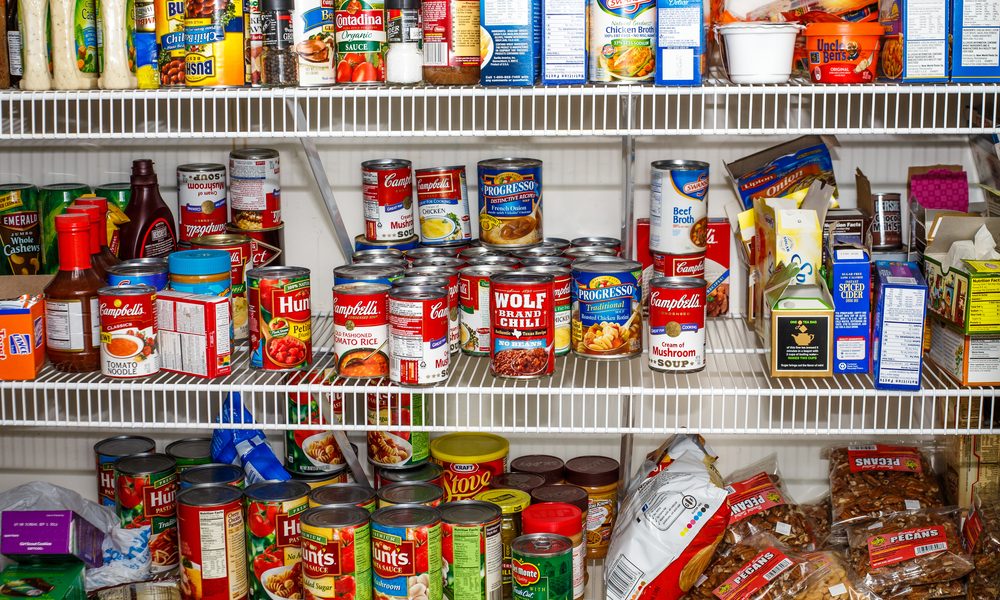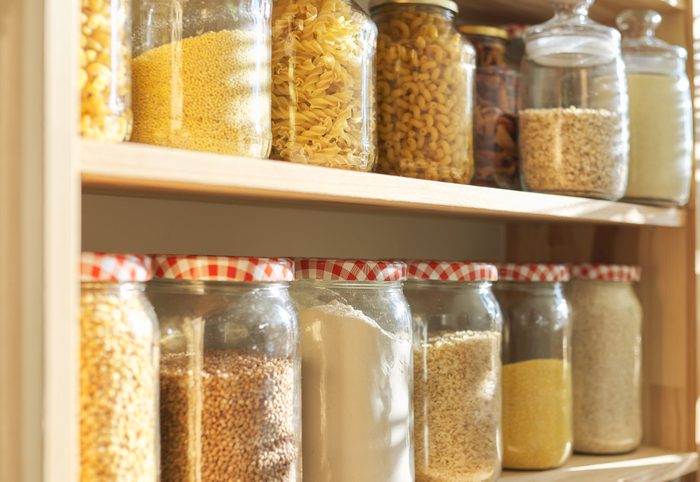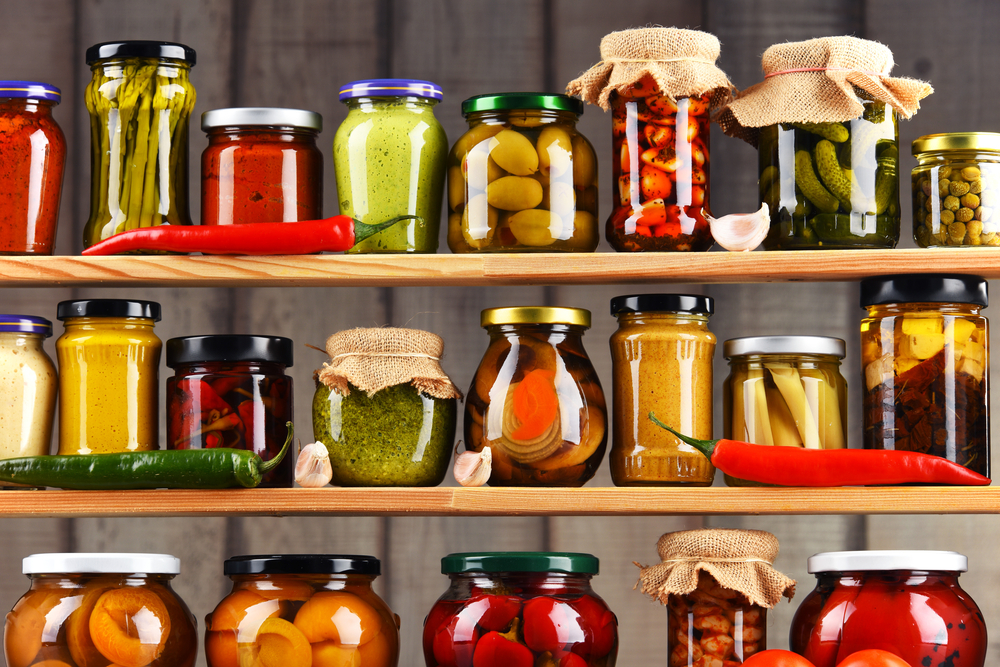
How Food Manufacturers Are Misleading Shoppers with These Clever Labels!

According to a new report, food manufacturers have been deceiving the public, especially the food shoppers, for labeling their products as “artisanal” or homemade. When in reality, they’re not.
The Misleading Trick
The European Consumer Organization (BEUC) recently published a report that stated the regulations on food labeling should be strengthened and toughened up for the region. While the current law mandates the food manufacturers to indicate the amount of fat, salt, and sugar level in each food, there’s nothing in the provision that stops these food manufacturers from making false claims.
The organization also noted how some of them were using deceptive pictures as a facade to entice the shoppers into thinking they are selling healthy foods.

VH-studio/Shutterstock
Regardless of your bloating culprit, Cording says you can get back on track by eating these nutritious de-bloating foods.
According to the report, the organization laid out three areas in which food mislabeling mostly occurred:
- Foods that are often labeled as “artisanal”, “natural”, or “traditional” give an assumption that the product is handled manually, with little to no processing method involved. When in truth these foods are processed inside a factory. Furthermore, the recipes, additives, ingredients, and industrial dyes used in concocting the food could be not considered as traditional or natural, and yet the food manufacturers keep labeling them as such.
- Second: The use of phony fruits. According to the report, most food manufacturers used a pack of healthy fruits like cherries and strawberries as the front picture of their food products, evoking the idea that the said pack contains healthy fruits. When in reality, the fruits are packed with artificial colorings and flavorings.
- The label whole grains are only in the name. While the food products may contain the whole grain among its ingredients, but most of the whole grains they claimed are also processed ones. According to the assessment the BEUC conducted, a pasta with 55% whole grain content didn’t look any different from another product with 100% whole grain pasta.
The EU Shoppers are Suffering From Mislabeled Products.
The report revealed some examples of the said areas they studied. One notable case was in Norway when the team bought a “natural turkey fillet” package. When they inspected its food labels and nutritional content, they found out it only had 53% turkey. The remaining 47% contained additives and chicken. In Italy, one food manufacturer boasted their artichoke soup was made of “natural ingredients.” But the organization found out the soup only consist of 2.7% artichoke and was full of flavorings.

monticello/Shutterstock
The report also pointed out that Pret claimed their foods, especially their sandwiches were all “natural”, but it was labeled with E-numbers. A UK ad watchdog also criticized the company for their food mislabeling, when it’s clear that a natural ingredient would come straight from nature, so it should have uncomplicated names and must not contain numbers.
Meanwhile, Belgium and the Netherlands both have this popular dairy brand bearing a label of “red fruit yogurt drink.” The dairy also contained pictures of raspberries and strawberries, when in fact the product only contained 2% fruit juice and was cheaper than an apple. The BEUC compiled all these data together from different consumer organizations in various European countries. While the UK has yet to submit examples, the organization claims the British consumers also suffer from these mislabeled products into assuming they eat healthy foods when they’re actually not.
Debate on Proper Food Labeling
Reynolds said they conducted some research about UK supermarkets and found that the “wholemeal bread” most food manufacturers sell were made of refined flour, which was cheaper but it lacked the nutritional value compared to real whole grains. That’s why he’s urging the UK government to implement the Honest Crust Act, which could sue these manufacturers legally for using marketing terms.
The said act will also require the supermarkets and manufacturers to print the full list of chemicals and ingredients used to concoct the food. He also emphasizes this is a perfect opportunity for the country to enforce its own food labeling regulations to protect the UK consumers before they leave EU. Finally, he hopes that all British citizens will finally have the freedom to make healthy choices.
More in Health & Well-being
-
`
Here’s Everything You Need to Know About Open Relationships
An open relationship is a consensual arrangement where partners agree to engage in romantic or sexual relationships with other people. Unlike...
June 6, 2024 -
`
Explore the Multifaceted Goals of Meditation
What is the goal of meditation? If you have ever found yourself asking this question, you are not alone. Meditation has...
May 31, 2024 -
`
When is National I Love You Day Celebrated? Mark Your Calendar
Life can get hectic, and sometimes amidst the daily grind, we forget to express our love and appreciation for the phenomenal...
May 23, 2024 -
`
When’s the Best Time of Day to Fish?
For any angler, a successful fishing trip hinges on several factors. But one of the most crucial elements is timing. Knowing...
May 14, 2024 -
`
What Mental Illness Does Britney Spears Have? Discovering the Answer
Britney Spears, a name that resonates with millions around the globe, goes far beyond the glitz and glamour of her stardom....
May 7, 2024 -
`
Here Are Some Easy Ways To Say No To Unrealistic Expectations In Your Relationship
If you are in a relationship, you should constantly work on improving it. Some early lovebirds fall in love too quickly...
May 3, 2024 -
`
Therapy? Medication? What Are the Treatments for PTSD
Post-Traumatic Stress Disorder (PTSD) is a common after-effect of traumatic events. It can be a debilitating condition, but the good news...
April 25, 2024 -
`
Courting vs Dating – Which Relationship Path is Right for You?
In today’s fast-paced world, the terms ‘courting’ and ‘dating’ often swirl around in conversations about relationships. While some people may use...
April 23, 2024 -
`
Essential Mexico Travel Tips for a Seamless Adventure
Mexico, a land of vibrant culture, breathtaking landscapes, and mouthwatering cuisine, beckons travelers from across the globe. But before you embark...
April 16, 2024















You must be logged in to post a comment Login